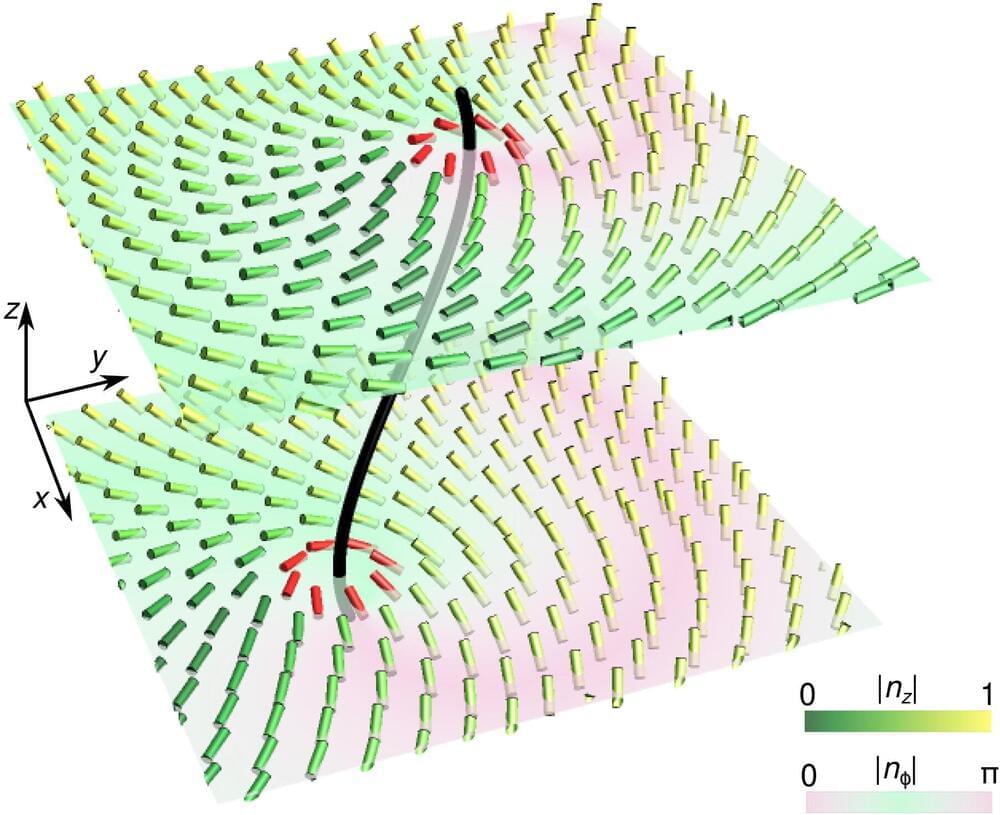A pair of researchers at MIT have found evidence suggesting that a new kind of computer could be built based on liquid crystals rather than silicon. In their paper published in the journal Science Advances, Žiga Kos and Jörn Dunkel outline a possible design for a computer that takes advantage of slight differences in the orientation of the molecules that make up liquid crystals and the advantages such a system would have over those currently in use.
Most modern computer screens are made using liquid crystal displays (LCDs). Such displays are made by growing crystals in a flat plane. These crystals are made up of rod-shaped molecules that line up in a parallel fashion (those that line up the wrong way are removed). The orientation of the molecules in LCDs are not all perfect alignments, of course, but they are close enough to allow for sharp imagery.
In this new effort, Kos and Dunkel, suggest it should be possible to take advantage of those slight misalignments to create a new way to hold and manipulate computer data. They note that such a computer could encode a unique value to each type of misalignment to hold a bit of data. Thus, a computer using this approach would not be constrained to conventional binary bits—it could have a whole host of options, perhaps making it much faster than machines used today (depending on how quickly the orientations could be changed).









Comments are closed.